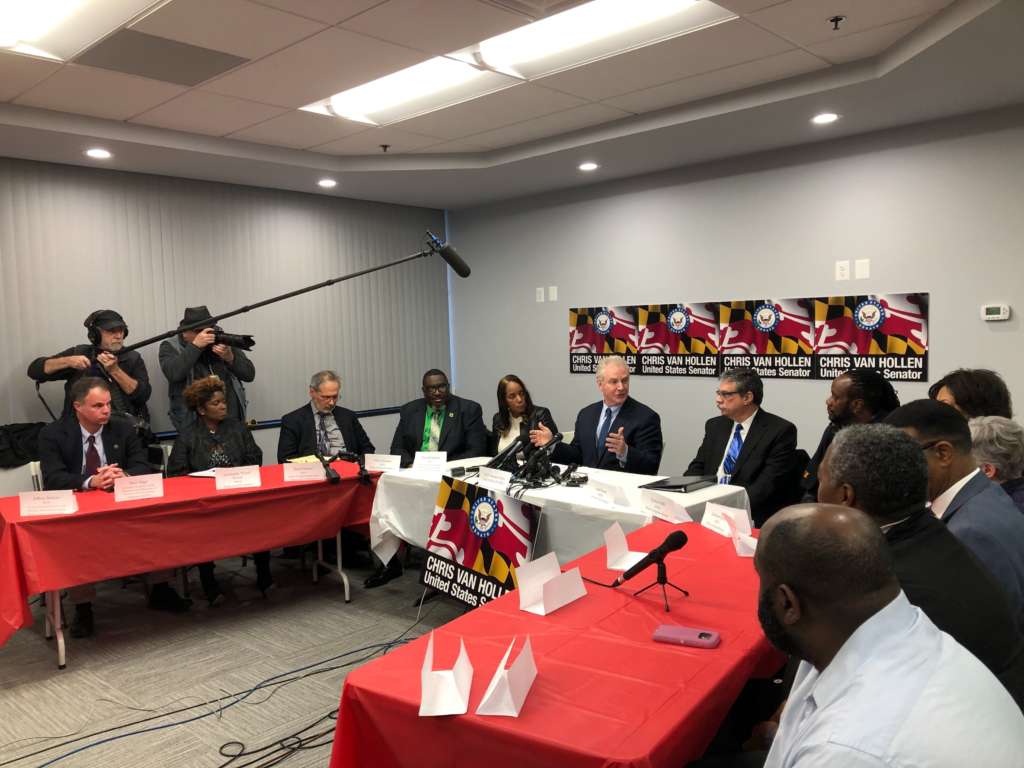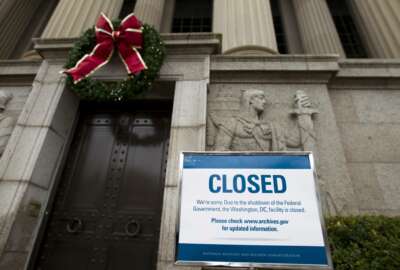
‘This isn’t normal’: Shutdown about more than missed paychecks
Furloughed and excepted federal employees said the government shutdown is prompting them to make tough decisions about their bills, mortgage and family obligations.
For some federal employees, the government shutdown — now entering its 17th day — is getting personal.
Recent comments from President Donald Trump, who said late last week the government shutdown could go on for “months or years” and suggested federal employees who are working or furloughed without pay may need to make “adjustments” to deal with the shortfall, are an additional sting on the wound.
“Once I heard him say this is going to be going for years, the first thing I’m thinking about is, ‘I have to move on. This is not the place for me,'” Johnny Zuglar, a Census employee, said Monday at a roundtable on the government shutdown with federal workers. “At the end of the day my first obligation is to my family. I can’t tell my son, ‘Hey, you know I’m on furlough for two months, three months or four months,’ because I have to pay my bills.”

Sen. Chris Van Hollen (D-Md.) hosted Monday’s roundtable with employees, most of whom hold leadership positions or play active roles in the American Federation of Government Employees, National Treasury Employees Union and the International Federation of Professional and Technical Engineers.
“This isn’t normal,” Ashaki Robinson, an employee at the Department of Housing and Urban Development, said. “There is nothing normal about putting 800,000 people out of work for a political fight.”
Tightening belts and making tough choices
Employees said they’re becoming increasingly worried and frustrated the longer the government shutdown continues. Without guarantee of their next paycheck, they’re making tough decisions about their car payments, medication and other family obligations.
Trysh Moton left her job as a federal contractor five years ago for what she thought would be a more secure position as an aerospace engineer at NASA’s Goddard Space Flight Center in Maryland. Moton is trying to secure her mortgage, and she has an appointment with her lender later this month.
Related Stories

OPM’s advice for furloughed employees who can’t make rent payments isn’t sitting well

A furloughed federal employee’s guide to filing for unemployment during the shutdown
Tyra McClelland is working without pay at the Court Services and Offender Supervision Agency.
“Here I am as an essential employee and have to get up and go to work every day, and I’m trying to figure out how to get my child lunch,” she said.
Without real promise that her next paycheck will come on time during the government shutdown, McClelland applied for her daughter to receive free or reduced school lunch.
“This hurts so much,” she added.
McClelland isn’t alone. Others at the roundtable said they or their colleagues were living to paycheck to paycheck.
Research confirms the anecdotes. The National Bureau of Economic Research studied the 2013 government shutdown as a temporary, concrete example of negative liquidity shock on large number of middle class Americans. The bureau in 2015 found the median federal worker had just enough assets to cover eight days of average spending before the 2013 shutdown. Before payday, the median federal employee had enough assets for five days of average spending during the 16-day shutdown.
No help to morale
Meanwhile, morale has already been low for some employees who had been watching the news and preparing for the sheer possibility of a government shutdown, said Edward Hill, a Census Bureau employee.
“Every few months we have to worry about a CR and whether the government is going to shut down. That does nothing for our morale. We have had to refocus our entire lives preparing for a government shutdown,” he said. I don’t know of any other company or any other agency or any other place where you require people to work and not pay them. Surely, the federal government should not be one of them.”
For most of these employees, the government shutdown isn’t only about missed paychecks and political rhetoric. It’s about the work that isn’t getting done at their agencies.
The Commodity Futures Trading Commission isn’t prosecuting cases.
Most of the Equal Employment Opportunity Commission is furloughed. Previously scheduled hearings at the agency have been canceled during the government shutdown, and the agency isn’t processing new or existing discrimination cases.
Most of NASA is shut down. HUD can’t secure emergency public housing for those in need.
“We should be able to go to work for the public, because that’s what we’re committed to,” Robinson, the HUD employee, said. “Honestly, it’s really about more than just us. It’s about who we serve and what our mission is.”
Copyright © 2025 Federal News Network. All rights reserved. This website is not intended for users located within the European Economic Area.
Nicole Ogrysko is a reporter for Federal News Network focusing on the federal workforce and federal pay and benefits.
Follow @nogryskoWFED



